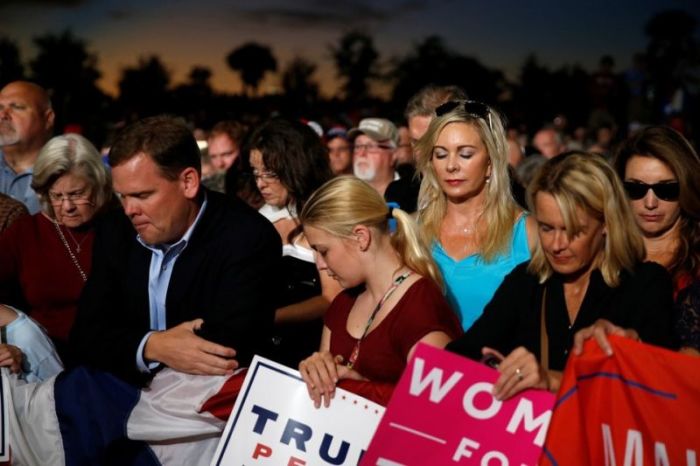Trump Era Confusion on Evangelical Identity: NAE Makes Clarifying Statement

The National Association of Evangelicals on Tuesday clarified exactly who evangelicals are at a time when many in America have a misunderstanding of what the word really means.
NAE, which represents 45,000 churches across 40 different denominations, released a statement Tuesday on evangelical identity titled "Evangelicals — Shared Faith in Broad Diversity."
The statement comes as many secular and even some religious Americans only view evangelicals through a political lens instead of a theological one.
As conservative white evangelicals have made headlines in the past two years for their support of President Donald Trump and their engagement with his administration, some people may be misled by the abundance of media coverage to believe that conservative white evangelicals basically speak for evangelicalism as a whole.
However, that is not the case.
"Because there are millions of us in the United States and far more of us in other countries around the world, there are subgroups identified by where we live, how we vote, the level of our education or even our local cultural expressions," the NAE statement reads. "Each has distinctive beliefs and practices that may be unfamiliar or uncomfortable to one another. Sometimes these subgroups or their leaders are identified as typical of all evangelicals even though there is no consensus, connection or communication between them."
NAE has maintained for the past three years that evangelicals are Christians who, regardless of political beliefs, believe in four basic truths:
- The Bible is the highest authority for what I believe.
- It is very important for me personally to encourage non-Christians to trust Jesus Christ as their Savior.
- Jesus Christ's death on the cross is the only sacrifice that could remove the penalty of my sin.
- Only those who trust in Jesus Christ alone as their Savior receive God's free gift of eternal salvation.
According NAE's new statement, the diversity of evangelicals "ranges across geography, race, politics, education and economics." Most importantly, NAE asserts that evangelicals "identify ourselves by our spiritual convictions," not political convictions.
Those convictions, the statement continues, include "the authority of the Bible, salvation through Jesus Christ alone and living out our faith in everyday life, especially sharing the good news of Jesus with others. We share the historic Christian beliefs in God the Father, Son and Holy Spirit. We believe Jesus died on the cross and was resurrected to life."
Although evangelicals — like other religious demographics — might be divided politically or culturally, NAE stresses that there is at least one thing that all evangelicals have in common.
"What all evangelicals share in common does not require organizational connection, denominational affiliations or shared leadership," the statement reads. "Our common bond is personal faith in Jesus Christ as Savior and Lord."
"Throughout history and ongoing today is the compassion and care that evangelical Christians have for others. This has led to sending missionaries, founding colleges, building hospitals, feeding the hungry, seeking justice for the poor and serving as the agents of Jesus in a broken world," the NAE statement continues. "The variety of evangelicals and our many causes have led evangelicals to approaches that differ from one another and that even cause conflict — both with society at large and with other evangelicals. We have both succeeded and failed but we have not given up. We return to the teaching of the Bible and the leadership of Jesus in our quest to be faithful to our callings to love God, love our neighbors and share our faith."
The statement concludes by stating that "our identity is in our faith in the midst of our diversity."
In April, a group of about 50 evangelical leaders and scholars met at Wheaton College in Illinois to discuss the state of evangelicalism during the Trump era and the "series of challenges approaching us from both the right and the left."
The meeting was attended by prominent leaders including popular pastor and author Tim Keller and New York City megachurch pastor A.R. Bernard. Also included in the meeting was World Relief's Jenny Yang, vice president of advocacy and policy at the humanitarian arm of the NAE.
"I think what you had is you had people in the room who voted for Trump. I think you had people in the room who either didn't cast a vote or voted for a third party candidate and you had some people in the room who voted Democrat," meeting participant Darrell Bock from Dallas Theological Seminary told The Christian Post last month. "In that sense it was a big tent meeting."




























